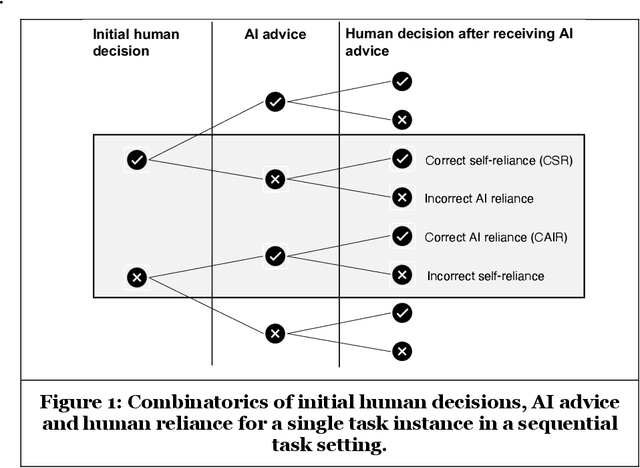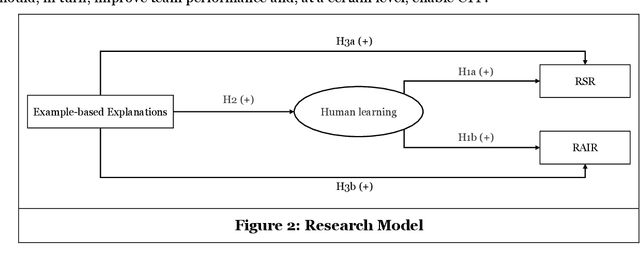Andrea Bartos
Towards Effective Human-AI Decision-Making: The Role of Human Learning in Appropriate Reliance on AI Advice
Oct 03, 2023



Abstract:The true potential of human-AI collaboration lies in exploiting the complementary capabilities of humans and AI to achieve a joint performance superior to that of the individual AI or human, i.e., to achieve complementary team performance (CTP). To realize this complementarity potential, humans need to exercise discretion in following AI 's advice, i.e., appropriately relying on the AI's advice. While previous work has focused on building a mental model of the AI to assess AI recommendations, recent research has shown that the mental model alone cannot explain appropriate reliance. We hypothesize that, in addition to the mental model, human learning is a key mediator of appropriate reliance and, thus, CTP. In this study, we demonstrate the relationship between learning and appropriate reliance in an experiment with 100 participants. This work provides fundamental concepts for analyzing reliance and derives implications for the effective design of human-AI decision-making.
Appropriate Reliance on AI Advice: Conceptualization and the Effect of Explanations
Feb 07, 2023Abstract:AI advice is becoming increasingly popular, e.g., in investment and medical treatment decisions. As this advice is typically imperfect, decision-makers have to exert discretion as to whether actually follow that advice: they have to "appropriately" rely on correct and turn down incorrect advice. However, current research on appropriate reliance still lacks a common definition as well as an operational measurement concept. Additionally, no in-depth behavioral experiments have been conducted that help understand the factors influencing this behavior. In this paper, we propose Appropriateness of Reliance (AoR) as an underlying, quantifiable two-dimensional measurement concept. We develop a research model that analyzes the effect of providing explanations for AI advice. In an experiment with 200 participants, we demonstrate how these explanations influence the AoR, and, thus, the effectiveness of AI advice. Our work contributes fundamental concepts for the analysis of reliance behavior and the purposeful design of AI advisors.
 Add to Chrome
Add to Chrome Add to Firefox
Add to Firefox Add to Edge
Add to Edge